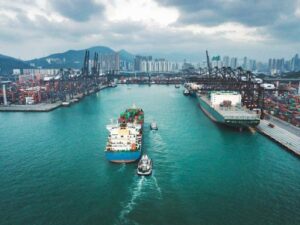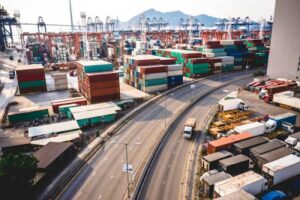Hong Kong has long been celebrated as a major international shipping hub, a dynamic crossroads for goods and services that connects the East with the West. With its exceptional infrastructure, strategic location, and business-friendly environment, the city is a gateway for global trade, facilitating the seamless movement of goods across borders. However, in recent years, Hong Kong’s shipping industry has undergone significant changes, particularly with the introduction of various shipping restrictions. While these restrictions may initially seem like a challenge for some businesses, they offer a host of benefits that can enhance efficiency, security, and sustainability in the long run. Let’s explore the positive aspects of these regulations, which are designed to improve the shipping process and contribute to the greater global economy. Click Here for more information.

The implementation of shipping restrictions in Hong Kong serves as a double-edged sword. On the one hand, businesses might face initial obstacles due to the new rules. Yet, when looked at from a broader perspective, the shift is a step toward more efficient, streamlined, and secure international trade practices. The core of these regulations lies in reducing the complexities of global shipping by creating a more organized and responsible framework. But what exactly does this mean for businesses and consumers?
At the heart of the restrictions is a marked improvement in cargo security. Hong Kong’s customs and port authorities have long been renowned for their stringent security protocols. However, as global trade grows in volume and complexity, shipping restrictions have become increasingly necessary to keep pace with new threats, such as smuggling, fraud, and terrorism. These restrictions are designed to create a more robust and reliable cargo inspection process, ensuring that only legitimate and safe goods pass through the city’s ports. This increases the overall security of shipments, giving businesses and consumers alike peace of mind when it comes to the integrity of their products.
Moreover, Hong Kong’s shipping restrictions offer significant environmental advantages. As the world increasingly recognizes the need for sustainability, the city’s regulations help minimize the environmental impact of shipping activities. One example is the stricter enforcement of emission standards for shipping vessels. These restrictions push shipping companies to adopt more eco-friendly technologies, such as cleaner fuels and energy-efficient vessels. Over time, this will contribute to a reduction in air pollution, helping Hong Kong maintain its reputation as a modern, green city. The long-term benefits of cleaner shipping practices extend far beyond Hong Kong’s borders, benefiting the global community by contributing to the reduction of harmful emissions in our oceans and skies.
Another positive outcome of these shipping restrictions is the improvement in logistics efficiency. Hong Kong has long been a global leader in terms of supply chain management and logistics infrastructure. With the new shipping rules in place, companies are being pushed to adapt their operations, rethink their logistics strategies, and streamline their processes. These changes are forcing companies to become more agile and adaptive, resulting in better overall supply chain management. Enhanced visibility into shipments, more accurate tracking systems, and tighter controls on import/export procedures mean fewer delays, fewer mistakes, and an overall increase in the efficiency of operations. For businesses operating in Hong Kong, these shipping restrictions might initially seem cumbersome, but they encourage the adoption of more sophisticated technologies that ultimately enhance operational performance.
Furthermore, these regulations provide a boost to local businesses by leveling the playing field. Smaller companies and startups, in particular, stand to gain from these measures. As larger corporations adjust to the new shipping rules, smaller players can implement these changes more quickly and nimbly, without the heavy burden of legacy systems to overhaul. This creates an environment where innovation thrives and businesses can find more cost-effective and efficient ways to compete in the global marketplace. Smaller companies can take advantage of these shipping restrictions to optimize their operations and better serve their customers, while large corporations may find themselves playing catch-up.
The shipping restrictions in Hong Kong are also beneficial in terms of regulatory compliance. In today’s global trade environment, navigating the complexities of various international regulations can be a daunting task. Hong Kong, with its reputation for regulatory transparency and clarity, offers businesses a more predictable and organized approach to shipping. These restrictions help create a more cohesive regulatory framework that aligns with global standards, reducing the chances of miscommunication or confusion when it comes to complying with international laws. For companies that operate on a global scale, this predictability translates into fewer surprises, lower costs, and reduced risk of penalties or fines for non-compliance.
In addition to providing a more secure, sustainable, and efficient shipping environment, these regulations also present a chance for businesses to improve their customer service. When supply chains are more efficient and secure, the end consumer benefits from more reliable deliveries and better-quality products. As the global market demands faster and more accurate delivery, Hong Kong’s shipping restrictions help pave the way for businesses to meet these expectations. These restrictions are also fostering closer collaboration between businesses, shipping companies, and government agencies, all of whom are working together to create a seamless, efficient shipping experience that benefits everyone involved.

The benefits of Hong Kong’s shipping restrictions extend beyond the local economy. The changes are poised to have a ripple effect on global trade, reinforcing Hong Kong’s role as a critical player in international shipping. As businesses around the world adapt to these regulations, they will begin to see a more organized, secure, and sustainable global shipping network emerge. Hong Kong’s focus on enhanced security, environmental responsibility, and efficient logistics sets a global standard for the future of international trade.
In conclusion, while shipping restrictions in Hong Kong may present initial challenges to some businesses, they ultimately offer a wealth of benefits that improve the security, sustainability, and efficiency of global trade. With enhanced security measures, eco-friendly shipping practices, and a more efficient logistics system, these restrictions create a more reliable and organized shipping environment. Businesses that can adapt to these changes will be well-positioned to thrive in the future, and the global shipping industry will be better equipped to meet the demands of a rapidly changing world. Hong Kong, once again, proves that its position as a leading international shipping hub is not just a result of its location, but also its commitment to innovation and progress.




